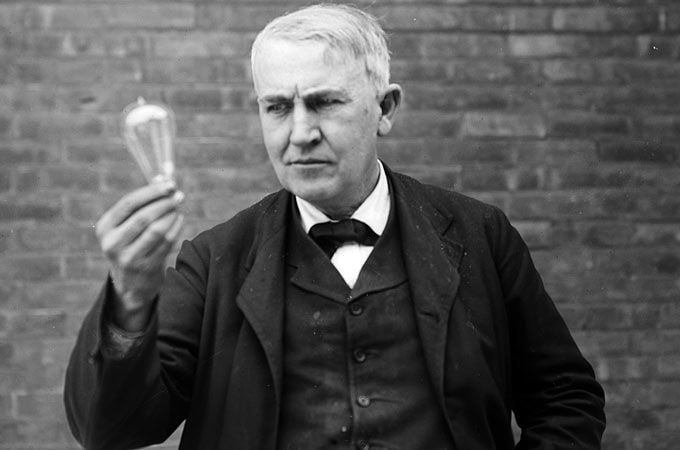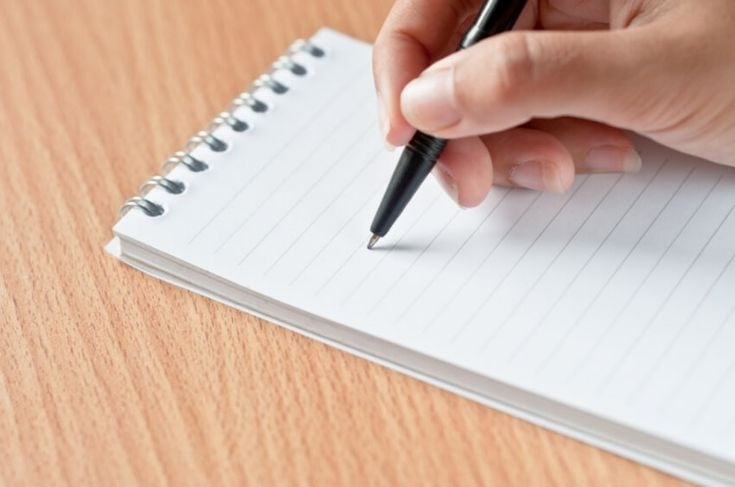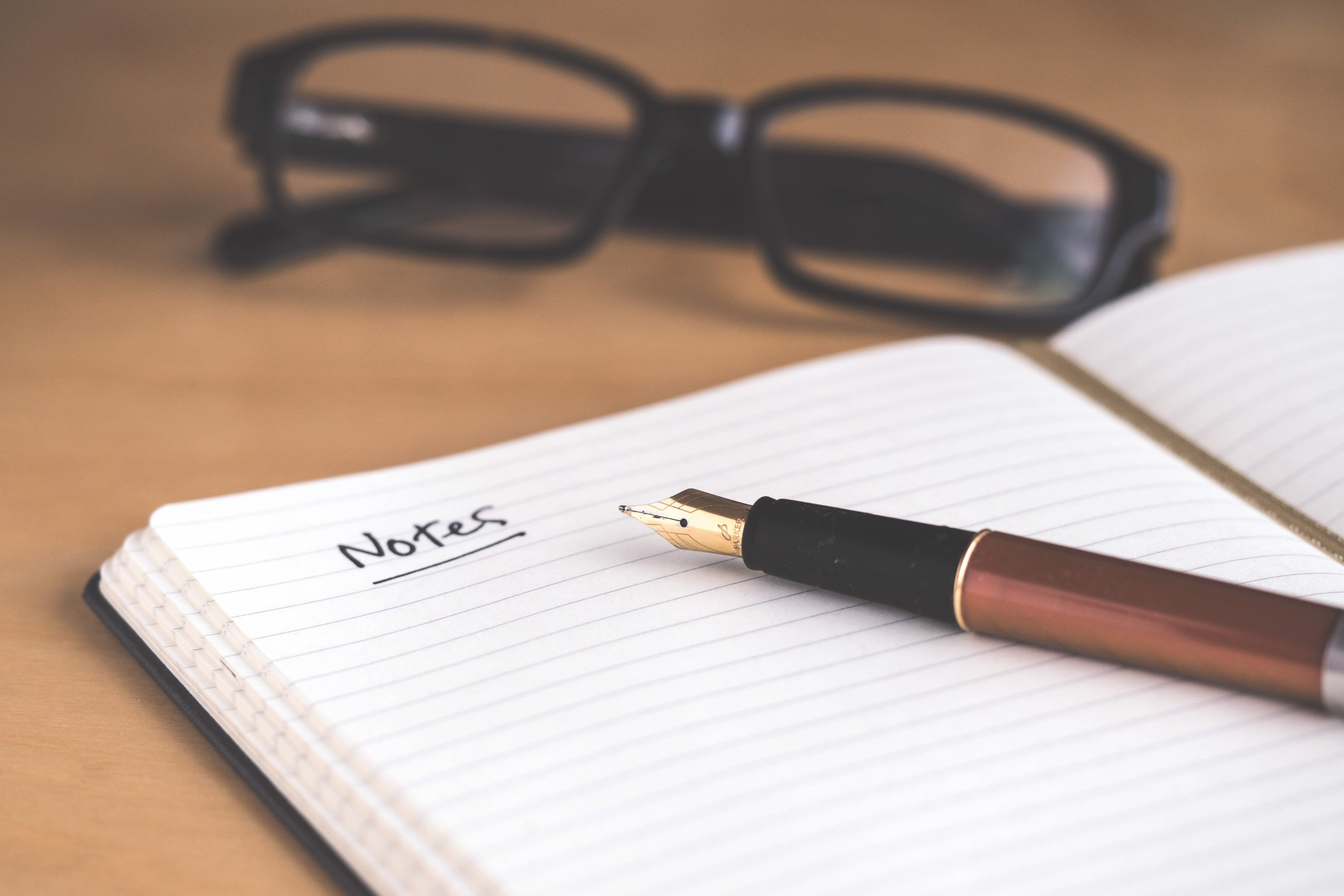Taking notes also helps you get ideas out of your mind, record them on paper, and stimulate your desire to implement the ideas you have taken. These notes become your “creative reference.” You can find actions to take and take as a reference and derive ideas from them. It also helps you improve your time management skills and enhance your focus and productivity.
This post will discuss the value of taking notes, how to use them, and how to develop a habit that will help you succeed.
Some of the most popular successful note-takers
The art of note-taking is a common habit used by the most successful people in the world; taking notes can help you organise your thoughts and record important information in every area of your personal and professional life; here are the names of some successful people who practice note-taking:
1. Richard Branson
Entrepreneur Richard Branson believes that everyone should take notes. He carries a notebook with him wherever he goes, and taking notes is one of his most important habits. He comments, “I consume dozens of notebooks yearly and take notes of everything that passes me daily. A thought that is not recorded gets lost and forgotten. When inspiration comes to you, you must hold on to it before you lose it."

2. Thomas Edison
Thomas Edison has taken more than five million pages of notes. His note-taking skills have evolved to ensure that every helpful and crucial information is recorded so that he can use it as a reference to help him remember.

3. Bill Gates
According to many reports, Bill Gates is a leading note-taker and prefers to use a yellow notebook and pen to record important information.

4. George Lucas
The director of the “Star Wars” film series always kept a pocketbook to write down ideas.

5. Tim Ferriss
Tim Ferriss's insistence on taking notes in his handwriting allows him to remember the most prominent aspects of his life: “I trust the weakest pen more than the strongest memory,” he says.

Other notable people who used to take notes include Ernest Hemingway, Mark Twain, Pablo Picasso, Sheryl Sandberg, J. J. K. Rowling, Bruce Springsteen, and Aaron Sorkin.
Why is taking notes important?
Taking notes is one of the most important pillars of success in work and life. It helps you improve your ability to listen, learn, imagine, and create.
“The best leaders take notes and ask the best questions.” - Tom Peters.
But note-taking is still an uncommon habit for many, despite its many benefits, so take a look at some of the reasons why note-taking is essential:
- Emphasise and clarify key points in your mind.
- Gain a deeper understanding of the content of meetings, lectures, or events, and maintain focus.
- Create links between relevant ideas.
- Make it possible to draw and illustrate your notes in your personal style, and help remember information.
- Help summarise information.
- Please make it possible to take notes on anything you would like to understand more deeply in the future.
- Recording simple ideas can get lost.
Think about it
Will you be able to remember everything already? Isn't it helpful to simply write down what you hear, learn, and think? It is possible to cultivate the habit of taking notes and reap its benefits.
These days, many applications, such as Evernote and OneNote, can be used to take notes. However, the most successful people we mentioned earlier have another thing in common: They use paper and a pen to take their notes.
Benefits of taking notes
We introduce you to 12 benefits of taking notes:
1. Freedom from overflow of information
Many things are always on our minds, making us feel confused. So, write down all your ideas and frustrations in lists on paper until your mind is completely emptied. Then, you can arrange notes and determine the work or project that deserves your attention.
2. Enhancing listening
When your mind is busy listening, whether in a meeting, a seminar, or meeting friends, your mind will focus on memorising and remembering ideas.
You can take notes and keep listening instead of thinking about remembering information. You can take a quick note and continue listening instead of trying to remember what you have heard.
3. Sense of seriousness
Something like magic happens when you take notes. Words gain new power and help you make sure that you act with your mindfully active and active.
Taking notes to take notes will not help you; what really matters is turning those notes into actionable ideas.
4. Getting the mind used to memorising important information
As you develop note-taking as a habit, it will become normal during meetings, events, seminars, workshops, etc.
A simple note or idea may turn into a much larger project, as Richard Branson says that if he had never practised note-taking, he would never have been able to establish many companies and projects affiliated with his company, Virgin.
5. Learning to read effectively
Whether you're reading a book on personal or professional development, note-taking can help you stay focused and give you the ability to remember critical quotes, processes, or thinking techniques.
You can, of course, underline the essential points that interest you in a book you read and then turn the corner of the page, but extracting the main ideas from this book and then referring to them allows you to dig deeper into them, or consider ways in which you can apply these elements in your work and life.
6. Improving memory
Humans tend to forget nearly 40% of new information within the first 24 hours of reading or hearing it, so effective note-taking can help you retain and retrieve about 10% of the information you receive.
When you take notes in your handwriting, you write down and organise the information as you think, prompting your brain to process it more deeply.

7. Organizing ideas
One of the challenges people face while taking notes is organising them so that they can refer to them later. Not only is it enough to take notes, but you must also reconsider them and keep important information in mind.
If your notes are unstructured, this will be difficult. To simplify this process, you can keep all your notes in the same place, use the same format, and review them every week or two.
8. Enhance Attention
You will interact and engage with your surroundings more when you carry a notebook and pen everywhere. You will focus on ideas, quotes, or the learning experience, become more involved with your surroundings, and extract and record information that interests you when you develop note-taking skills.
You can then scrutinise, tidy up, and organise your notes to enhance your learning experience or extract ideas to develop more significant ideas.
9. Practice recording only important information
Taking notes avoids copying everything we hear in a meeting, training session, or classroom. A pen and notepad make us focus and pay attention to important ideas. It allows us to block out “noise” and focus on the most relevant points, keywords, or ideas we can develop later or refer to benefit from them.
10. Ask the right questions
Your mind will open up, and your thought process will expand when you concentrate on a meeting and your notes because you'll notice connections you might otherwise miss. That helps you ask the right questions when you need to clarify a particular point or have a new idea you want to explore further.
11. Promote the desire to learn
Taking notes can help you clarify your thoughts; once you've written them down, you will experience some form of mental stimulation and connectedness.
12. Help achieve goals
Many studies show that taking notes helps people enhance learning and achieve their goals. One of Brian Tracy's basic philosophies for achieving goals is to write down your goals because you stick to what you write more than what you say.
Dr. Gail Matthews, a psychology professor at Dominican University in California, recently studied the art and science of goal setting; she concluded through collective research that those who regularly wrote down their goals and dreams achieved those desires at a much higher level than those who did not. I also discovered that the likelihood of achieving your goals and dreams increases by 42% simply by constantly writing them down.

How do you usually take notes?
The habit of taking notes enhances your focus, productivity, and creativity. It can help you record all your ideas and retain information that can prepare you for success.
Here are some tips with which you can gain the habit of taking notes in your daily life and master their application in the meeting room, in the classroom, or wherever you spend your time:
1. Use a notebook
Take your time finding a notebook that you like and fits you. Notebooks come in various sizes, shapes, and colours. Some popular styles include leather-bound notebooks and classic notebooks.
2. Put your notes in one place
You must keep all your notes in one place to ensure they are organised and easily referred to. You may prefer to allocate notebooks for different situations and educational experiences, such as one for writing down your ideas, one for office and meetings, and another for personal development. Alternatively, you can keep all your notes in one organised and indexed notebook to easily refer to them.
3. Carry your notebook wherever you go
Simply carrying a diary with you will inspire you to take notes; try it out, hold it with you for 21 days, and watch when and where you take notes and when you don't.
That will ensure you have a notebook during important meetings, activities, and opportunities.
4. Look for a note-taking style that suits you
Each of us has a different style of taking notes, so find a style that suits your thinking and ensures you get the most out of your notes. A one-word note or idea can be as effective as a detailed meeting presentation. Some note-taking techniques you can explore and try include:
- Mind maps.
- Blueprints.
- Graphs.
- Cornell method: A systematic system of summarising and organising observations invented by Walter Pauk in the 1940s.
- Take notes in the style of the writer Maria Popova.
- Rapid Logging Method: It is based on short handwritten lists, which summarise the most prominent information you have seen during the day.
5. Use the same format
Once you find a style that works for you, stick to it and adjust it to suit your personality. If you change it constantly, it will be challenging to track and understand your observations effectively later. You should also include the date on the notes page and put the title or main topic at the top, which is an efficient factor for tracking notes.
If you are creating different symbols or letters as reference points, use them as well.
6. Review your feedback
You may find it challenging to find time to review your notes, but it's critical to do so. For example, if you don't review your notes for a week after taking them, you won't remember them well and won't be as motivated to act on them. Try to review your notes within 48 hours of taking them. Some observations will prompt you to ask more questions, some will require more reflection, and others will not be a priority for you at present. By taking your time to review them, you are always proactive rather than acting on the principle of reactions.
7. Take Action
One key to acquiring a successful habit is to achieve some success, no matter how small. This success builds momentum in your life, helps you develop every day, and ensures the continuation of this habit. As Richard Branson said, "Review your ideas and turn them into actionable and measurable goals. If you do not write down your ideas, they will come from your memory before leaving the room."
Conclusion
Taking notes is one key to the success of many high-level entrepreneurs. If you can make notes, usually for yourself, you can make better decisions, solve problems more efficiently, and be more creative. The learning process will improve, and productivity will be enhanced.
It can take a lot of discipline to make note-taking a habit in your daily life. However, you'll reap great benefits once you find a system that works for you.






Add comment